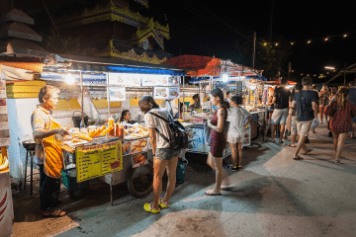June 24, 2020

By Steve Sowerby (Featured in The Global Response to Covid-19 by Mass Merchandiser Review US)
Despite being the first country outside of China to register a COVID-19 case, on January 13, Thailand is generally seen as one of the better managed countries in terms of response. After three months, the official reported cases stood at 3,037, with over 2,910 recovered and 57 fatalities. There have been no recorded CO- VID-19 fatalities since April 9 in this country of around 70 million inhabitants.
The Thai government’s response to the outbreak was initially based on nationwide surveillance and contact tracing. This was augmented by significant public education focused on self-monitoring for at-risk groups, practicing hygiene (especially hand washing), avoiding crowds and wearing masks. While travellers returning from high-risk countries were encouraged to self-quarantine for 14 days, major travel restrictions were not announced until March 5 for four high-risk countries (including China, Germany, Italy and Spain). This was expanded on March 19, as further restrictions required medical certification for international arrivals and health insurance for foreigners.
In March Thailand went into a broad lockdown, with the nation’s borders closed to foreign visitors, social gatherings banned, domestic travel restricted and all nonessential services, dine- in restaurants, pubs and bars, entertainment venues, and gyms, stores and malls shut, but for essential shops. There was no formal lockdown of the population but a nightly curfew from 10 pm until 4 am was initiated. Most international companies and major Thai companies initiated their own work-from-home policies. Generally, Thais stayed home on their own initiative.
On May 18, the situation eased with the reopening of malls and nonessential stores. It is timely to look at the winners and losers over this three-month period.
Winners
As consumers were not willing to travel to shop, convenience stores saw a significant uplift in sales of estimated over 50%. 7-Eleven, owned by CP Group, was the main beneficiary. 7-Eleven initiated temperature screening and obliged all shoppers to wear a mask when shopping in the store from the very beginning of the lockdown — ensuring a feeling of safety for shoppers.
Additionally, the company expanded its delivery service, recruiting 20,000 new employees.
Grocery and open markets remained open and busy throughout. Tesco and Big C (now owned by CP Group) and Topps (Central Group) all benefitted. Data indicate spiking sales increases in March and April stabilizing to a higher new normal level in May.
Thailand’s e-commerce has always been strong, and COVID-19 saw this channel increase across the board, especially FMCG, pharmacy and food. The food segment increase was the largest, as most restaurants switched, with- in hours, to delivery and wellentrenched aggregators like GRAB where able to scale to meet 50% demand increases within days.
Pharmacies were regarded as essential stores and remained open. Chain pharmacies were able to leverage their image for safety and quality as well as their supply chain to benefit from the surge in demand for hand sanitizers, face masks and vitamins, minerals and supplements.
Losers
Clearly the shopping malls, which form the major retail channel for electronic domestics, fashion and accessories, were significantly damaged by the lockdown. However, some brands were able to salvage a small amount through the e-commerce channel.
Stores serving the tourism sector had a calamitous fall in revenue, as the tourist industry essentially stopped for all of April and May. No international flights are permitted into Thailand until end of June. One of the biggest losers of all, because of the shutdown on travel, has been the state airline, Thai Airways. It went into bankruptcy restructuring on May 20.
Thais are very pragmatic, proud, practical and resourceful — witness the number of new entrepreneurs selling designer masks on the market literally days after the virus hit Thailand. There is optimism for a slow but steady recovery. Thailand will open its doors to world again in the not- too-far-distant future but, like for many countries, COVID-19 has signalled the beginning of a new economic chapter and the health and wellness of its communities.
Steve Sowerby Founder and CEO of XPotential & Co-Founder of The Consumer Healthcare Training Academy
